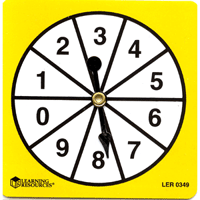
Japanese chart systems thread
#1

Posted 06 May 2011 - 12:46 AM
This is long...
The RIAJ 2010 Yearbook (http://www.riaj.or.j...f/RIAJ2010E.pdf) divides recorded music in three categories: audio recordings (physical recordings), music videos (DVD, Blu-Ray, etc.) and digital music (PC downloads + mobile downloads). According to this source (page one, below) in 2009, audio recordings represented 61% of the total value generated, while music videos represented a 17% and digital music a 22%. Value is a tricky measure if you think about it, so to recheck (see chart above on the same page) audio recordings dispatched 214 millions of units, music videos 59 and digital music 468.
If you check in the yearbook on page 25, below, there is a chart titled “Distribution System in Japan”. Depending on where are you in that scheme you’ll get different chart systems: RIAJ collects for Audio Recordings info from the record labels (all of them listed at the end of the book) and account for purchases less (estimated?) returns. Oricon and the rest just collect data from record shops.
Generalist chart systems for audio recordings (at least the ones I know):
Oricon (daily updates):
http://www.oricon.co.jp/rank/
Soundscan Japan (weekly updates):
http://www.phileweb....nking/cd-top20/
Tokushin (weekly updates, but not of that week):
http://tokushin.com/single
Seikodo (weekly, not really sure when they do update):
http://www.seikodo.c...t/h_single.html
And as we already know, Billboard based on Soundscan data.
Each of these collects sales from different shops around the country, but just the ones that are affiliated with them, so if you don’t register your shop with any of them, it doesn’t exist. So if would be great to know how many shops are registered with each one. Another valuable information is how they collect their data (telephone call, fax or scanning barcodes). I have to do more research on Music Week and Billboard, but just a hint:
http://books.google....epage&q&f=false
(which is almost corporate PR, but whatever…)
Oricon
http://es.wikipedia.org/wiki/Oricon
http://en.wikipedia.org/wiki/Oricon
http://ja.wikipedia....a.org/wiki/オリコン
Maybe the interesting part is on the footnotes, like this one:
http://www.oricon.co...ank/index2.html
http://www.oricon.co.jp/rank/list.html
But maybe, the most interesting data is in Oricon.biz but it seems is only for subscribers (don’t know if subscription is free or paid, only for Japan or not, or just for industry insiders (like it happens in Spain, for example)).
http://biz.oricon.co.jp/
The controversy about Oricon is related on Wikipedia about the company suing Hiro Ugaya (he does have a blog and website if you are interested in trusting his opinion), but you can check this http://www.japanfocu...id-McNeill/2377 or through The Japan Times archive or http://metropolis.co...d/slapp-happy/. The main point maybe is this (you can recheck the Billboard article above then):
“Industry insiders allege that music companies hype their acts into the charts by pre-ordering CDs, waiting until their song rises in the charts then canceling the orders, by which time they’ve already registered as “sales.” The orders become, in effect, self-fulfilling prophecies”.
(Does this have anything to do with Ninki charts?)
Apart from that article on Cyzo, there was one on Nikkei Entertainment, is quoted here, but the archives of that site seems to be failed right now, so Google cache:
http://www.google.es...tbTuFd7RgZneojQ
About the things mentioned over there, POS (Point Of Sale) for Soundscan, at least in USA, also count things like Amazon et al, but I’m not sure what is the case in Japan or what extent does it have on online retailers. Even if it is mentioned that Oricon still collect data via fax (and then, trusting whatever the record shops tell them (with the danger of payola or similar things (cheaper prices to buy from a record label and things like that)), Oricon also is using the POS system, scanning barcodes). Allegedly this interview is also related (to a guy that co-founded Oricon magazine): http://www.mynewsjapan.com/reports/581
Soundscan:
How does it works?
From “Music Business Handbook and Career Guide”:
"Soundscan –which like BDS and RingScan is owned by research giant Nielsen- tabulates unit sales of recorded music in the United States and Canada, both physical product such as Cds and downloads. The SoundScan sales trackers are linked to download platforms and bar codes from brick-and-mortar retail outlets representing more than 90% of the nation’s record sales. SoundScan uses that big base to project sales estimates for the full market place”.
http://books.google....epage&q&f=false
Some shops had more “weight”, for what I’ve seen on the web even 10 to 1, and most of them are indie shops or small shops, because they are the part with worst statistic representation (in one book, Keith Negus explains how the lack of SoundScan on Puerto Rico shops means that latin music has less pressence on Billboard charts…)
SoundScan PR talks that they have 90% of the USA shops covered, so is quite accurate. The thing is that they are not so implemented in Japan, so the extrapolation is grosser.
Check also on the same page how they explain how the RIAA works (the same thing that RIAJ does).
If you are more interested in this (or on radio) check chapter 7 in this book:
http://www.mediafire...dllcj2wruv9h4hf
…..
Digital sales
Returning to the RIAJ yearbook on page 8, chart “Composition of Digital Music Delivery by Format – Value Basis”, which roughly shows how 87% of digital music are mobile downloads, another 11% are PC downloads and the other 2% come from subscriptions (maybe you pay a monthly fee and you can download 25-50 songs, or something like that). Why is this important? Because if we use Itunes to represent “digital music”, we are getting it wrong: Itunes belongs to PC downloads. Also, now that we are talking about Itunes, to buy the same song over and over again, doesn’t account for that artist sales, just one time. And also, Billboard Hot 100 accounts apart from SoundScan data and radio spins the Itunes sales. Check the text at: http://www.billboard..._charts/hot100/
Following a link in RIAJ website to Pro-Music, and checking online music stores, there are 23 of these: http://www.pro-music...stores-asia.php
It could be great to determinate (or to complement if it is the case) which ones of those music stores are PC (Beatport, Oricon ME) or digital (Recochoku, Lismo). Anyway the only interest in this is for the accuracy of the RIAJ chart. http://en.wikipedia....tal_Track_Chart
On the Wikipedia page they talk that they started with Dwango, Mora, Mu-Mo, music.jp and Recochoku, and here they announced how they extended it to 14 providers: http://www.riaj.or.j...0/pr100219.html
(but I don’t know how much does that it accounts for)
Anyway the weekly chart doesn’t provide figures: http://www.riaj.or.j...hart/2011f.html
But you get, roughly sales data from the certifications for gold and platinum albums and singles, because they also gives them to digital downloads, both mobile and PC: http://www.riaj.or.j...rt/w110325.html
It seems that this, which is a bit hard to find on the website, could also be found on a PDF magazine that you can download there: http://www.riaj.or.j...011/201103.html
And, well, that is all that I remember now… Anyway, I’m going to see what info about the Japanese Market I could find on Billboard. Also, it seems that you can have a rough idea of how the Japanese record industry works in a couple of english books:
http://www.routledge.../9780415975803/
(you can check fragments of it on Google Books)
and, probably less specific for market things, but the author worked on the industry for years before becoming scholar (if you are thinking in buying it, try via Amazon UK)
http://www.routledge.../9780415380577/
---
More info to be added..
Current fav: b4z + Manaka
#2

Posted 06 May 2011 - 01:51 AM
riaj.or.jp/e/issue/pdf/RIAJ2011E.pdf
Take a look carefully at this data.
Everything is in decline.
#3

Posted 06 May 2011 - 09:16 PM
One of the biggest pieces of information was the fact that billions of yen is lost due to illegal downloads. I knew that there was a loss; but not quite so big.
Thank you both for all of the information.

#4

Posted 07 May 2011 - 11:31 AM
You should not take the numbers about lost sales due to piracy serious, simply because many people download stuff they would never buy in the first place, like for example if you like one song you can go buy that one song on itunes for example, but you can also go download the entire back catalouge of the whole label it was released on just because your bored, does that mean it was thousands of lost sales? no, just one but the music industry tries to make it look like you would have bought everything you ever downloaded if you would not have the ability to download.
#5

Posted 07 May 2011 - 03:42 PM
To a business, any thing that is considered targeted for a sale would be considered a loss if they're not making a profit of it. No matter how the public or guilty parties like to justify what they do and think that it's no big deal because they're only taking a song or a couple of songs or because it's available; a loss of a potential sale is still a loss.
We can get into an ethical battle about who's right, who's wrong, it's stealing, it's not stealing; but the fact of the matter is is that this is a serious issue to the music industry. Take a look at the declining sales. I'm not saying that illegal downloads are the main cause (please read that carefully); but I am saying that it does play an important factor. Do I take it serious? Yes. Do you? No. Please don't tell me to not take something seriously, when, morally, I do. If you don't, that's fine, and you've already justified why. This is not a debate or argument. I'm just politely asking you not to impose your ideals on me when it's obvious that I think that it's serious and wrong.
*and I do use iTunes to buy majority of my music....which is reported as a sale......even if it's just a few songs off of an album.*

#6

Posted 07 May 2011 - 03:46 PM
I'm not saying illegal downloads have no effect, just saying that there is no way for the music industry to know if you would have bought it or not if you could not have downloaded it. Also what about downloading stuff you already own legally? like for example all those silly 4 min dvds that come as extras with LTDs of singles? just downloading those cause I'm too lazy to change the disc and not because I'm not buying it.
Besides, there are a lot of other factors, liek for example the second hand market, take H!P singles for example which the Wotas buy in high numbers to get the lottery tickets then dump them on YAJ a day or two later at a bargain price, or the issue of being able to buy single songs instead of having to buy the whole album, or not all digital sales being counted.
#7

Posted 01 July 2011 - 08:36 AM

Shameless Plug-ins: Twitter | Yokoshima Aeri Thread | Mitsumune Kaoru Thread
#8

Posted 02 August 2011 - 04:34 PM
Personally the way i have always seen it is there is a higher chance of people buying something if they can download it. Not everyone who can download it will actually buy a copy but i think in many cases it increases the chance of something being bought almost like a "try before you buy" system. I wonder how many foreigners got into j pop from being able to download it for free figure out they like it and then buy the real CD's because they want to support the artists.
There's an awful lot of fearmongering around illegal downloads mainly from the mainstream record companies when it's had very little impact on their sales at all. Downloading has had more positive than negative effects on music with lesser known groups and foreign groups able to reach a wider audience through file sharing and i think for many of those it's equaled a sales increase.
I think the biggest decline in sales downloads have cause is not from illegal ones but from legal ones since the Oricon and other chart systems only account for physical sales much of the time so you had Utada Hikaru's latest album Heart Station listed as selling 1 million copies when it was a top seller on the Itunes Japan charts selling over 15 million downloads adding that to physical sales and that would be 16 millon copies and that's just if Itunes sales counted towards the chart position. A decrease in 15 million sales and that doesn't include illegal downloads at all.
TEAM TAKECHAN
#9

Posted 02 August 2011 - 04:37 PM
-----
#10

Posted 31 August 2011 - 11:57 PM
How many sales to people like me that wanted to see it badly enough to buy it did I cost Momoiro Clover?
On another note, major improvement to the Oricon ranking webpage. Very easy to get back to previous weeks as far back as January 2006. Want to see the Berryz chart position for Dschinghis Khan? No problem.
#11

Posted 09 January 2012 - 01:26 PM
^
To a business, any thing that is considered targeted for a sale would be considered a loss if they're not making a profit of it. No matter how the public or guilty parties like to justify what they do and think that it's no big deal because they're only taking a song or a couple of songs or because it's available; a loss of a potential sale is still a loss.
We can get into an ethical battle about who's right, who's wrong, it's stealing, it's not stealing; but the fact of the matter is is that this is a serious issue to the music industry. Take a look at the declining sales. I'm not saying that illegal downloads are the main cause (please read that carefully); but I am saying that it does play an important factor. Do I take it serious? Yes. Do you? No. Please don't tell me to not take something seriously, when, morally, I do. If you don't, that's fine, and you've already justified why. This is not a debate or argument. I'm just politely asking you not to impose your ideals on me when it's obvious that I think that it's serious and wrong.
*and I do use iTunes to buy majority of my music....which is reported as a sale......even if it's just a few songs off of an album.*
I think you're missing Nao-kun's point. He (or she? I'm sorry) isn't arguing about whether piracy is right or wrong, nor is he trying to impose his beliefs on you or make any kind of moral argument. What I believe he's simply trying to state is the music industry overstates their losses due to piracy as I believe it's been proven that every download does not equal a lost sale. Just because someone goes and downloads Morning Musume's next single doesn't mean they were going to buy it in the first place.
And example is if someone with a limited disposable income wants to listen to Shouganai Yume Oibito, they're not going to spend the money on the single whether a pirated download is available or not. If a pirated download does happen to be available, they'll download. Now nobody in this thread is arguing whether that's right or wrong, legal or illegal, or any kind of ethical argument. What we're saying is it happens, and that every download cannot be counted as a lost sale.
500,000 illegal downloads of a single does not equal 500,000 lost sales.
EDIT: Sorry, just noticed these posts are about 8 months old. Whoops
#12

Posted 10 January 2012 - 04:05 AM
yep, thats what I meant and the first guess was correct, its he
#13

Posted 18 November 2012 - 01:03 PM
I read something at Facebook...
Koji (a ex-Five) tweeted, that even if you buy 100 copies at one shop in one purchase, Oricon will count only 2 copies for this purchase...
so you must buy only 2 copies and do several purchases....? example: you want buy 6 copies...so you will do the order 3 times.... O_O
is this really right?
that Oricon only count 2 CDs in one purchase for the same release....even if you buy 10-20?
I hope its the right thread...

~Ava and Siggy from Pi-chicci! Thanks sooooooooo much!~
#14

Posted 18 November 2012 - 01:55 PM
Its wrong, however Oricon has changed its counting system several times in the past, so may have been true at some point.
#15

Posted 16 June 2014 - 01:30 AM
Bad news for the overseas fans among you:
 1.jpg 68.14K
60 downloads
1.jpg 68.14K
60 downloads
 2.jpg 70.49K
54 downloads
2.jpg 70.49K
54 downloads
And from cdjapan website:
Items you purchase through CDJapan will be calculated into the daily and weekly sales data for Oricon music charts, as long as they are shipped within Japan. This applies to all items available through our website. Please note that Oricon does not count any data of products that are sent overseas from any shop, and CDJapan is no exception. Every morning, Oricon only collects aggregate sales data of previous day, and they do not collect any personal information of customers.
http://www.cdjapan.c.../product/oricon
#16

Posted 29 June 2014 - 08:55 PM
^^ This is a major f***k-up. Please forgive my French.
I hate the idea that Oricon just screws up us overseas fans thinking that we should never be a part of the fandom!
So what, do we have to always course most of the goods through forwarding services? Who in their right minds would think of things like these?
#17

Posted 07 August 2014 - 04:09 PM
Very interesting stuff. I'm hoping to learn a lot more about this sort of thing in the future, so will be frequenting this thread I think.
I do think it's clear that to count towards having a "number 1" in Japan, that means Japanese sales. That's the same anywhere. But also, I've been very impressed with how much Up-Front are courting international sales in the last year or two, as if it's becoming a bigger, more important part of the business strategy.
My biggest fear is that the idol circuit will be more and more dominated by the big-players, that is with Sony, Universal, or even Kodansha behind them, and that Hello! Project, if they have to fight an uneven fight for a small part at the table, will be less likely to be able to do big overseas events like Japan Expo (Paris) in the future. It's a shame for them to be losing such a big piece of their pie as Berryz Koubou just now. It could be a really critical year ahead for them, what with losing Sayumi too. If they can't replace these acts & characters with ones (at least) as popular, then... this can only strengthen the big-players' grip on the levers of publicity, right?
The overall decline in records sales - in my ignorance, that was not really what I was expecting, as I thought the positive sales for H!P over the last two years must have been part of an industry-wide bounce in Japan, but no sign of that in the figures shown here. So all the more impressive therefore.
Is there anything available in terms of demographics, who is (still) buying music in Japan. It seems like the demographic has diversified, or at least that they are very actively chasing a different kind of market than in the past.
I was particularly interested in working out the extent to which population decline in Japan is the key challenge ahead. My gut feeling is that, the population decline must be particularly hitting the part of the demographic which is important for the music industry. And that that might be the real spur as to why they are all chasing the foreign markets so hard at the minute.
If worldwide music sales are in disastrous decline, then this might suggest that the domestic issue of Japanese population decline is not as important as I was first thinking, maybe giving credence to the idea that it's piracy which is the big problem. However, I did see something that suggested that actually, those global figures include Japan, and the worldwide nose-dive is basically being driven, first-and-foremost, by Japan itself.
Interested in everyone's thoughts, and always keen to take new ideas and facts on board .... ....
#18

Posted 07 August 2014 - 04:32 PM
If worldwide music sales are in disastrous decline, then this might suggest that the domestic issue of Japanese population decline is not as important as I was first thinking, maybe giving credence to the idea that it's piracy which is the big problem. However, I did see something that suggested that actually, those global figures include Japan, and the worldwide nose-dive is basically being driven, first-and-foremost, by Japan itself.
Interested in everyone's thoughts, and always keen to take new ideas and facts on board .... ....
The reason why revenue fell last year is simply because Japanese people are buying less music than they used to. Digital and physical revenue fell last year, but the former was primarily a result of the decline of feature phones. Piracy appears to have declined as well.
East meet west at Daijobimasen
Tsunku is my oshi.
Not even the marriage scandal could end my devotion to him.
#19

Posted 09 August 2014 - 11:17 AM
This is what I’ve come up with so far. Sorry I’ve got quite a didactic written style which stems from my film studies days, but my main reason for posting is to invite contradiction. I’ll try and post the graphs, but I don’t think it’s going to work (sigh of relief out there??)
---------------------------------------------------------------------------------------------------------------------------------
If you look at just physical units for CDs / DVDs, the last four years or so have actually been relatively stable, perhaps showing a bottoming out after a long period of decline, and even rebounding a little in 2012. This was largely inspired by a period in which singles started to perform a bit better. However, the drop in the 2013 data comes as a real disappointment. It may be a blip, or a sign that the long decline is going to continue after all – future years will tell.
The convention is that the digital market is first recorded from 2005.
In unit terms, the digital market presents a very dramatic bubble, rapidly expanding through the first three years, but plummeting again in the last three or four.
As others have noted above, PC Downloads have actually constituted, thus far, a remarkably minor part of the digital market in Japan. It has been dominated by “Mastertones”, a ringtone download service. It’s the bursting of the ‘Mastertones’ bubble which is driving the overall unit crisis. I-tunes has started to grow and become more significant over the same period, but not yet by anything like enough to compensate for the Mastertones slide.
The Yen per Unit yield of digital is relatively low, basically because what counts as a ‘unit’ is totally different to physical sales. This therefore means that the Mastertones bubble looks less dramatic on the value graph than it does on the units graph. Physical sales continue to be more important in Japan than in other markets, a by-product, it seems, of the overwhelming prestige given to the Oricon chart, leading to companies continuing to prioritise ingenious ways of maximising physical sales.
But physical sales do continue to decline, and 2013 provided a new low, confounding the hope that a small bounce in 2012 had shown them to have at last bottomed out. But I still think we are, in the last four years or so, in a period of relatively non-dramatic decline in physical sales. I noted that the drop from 2007 to 2009 was particularly sharp, as the market for physical CDs shed over a quarter of its value in two years. But basically, decline has been the story over the whole of the period for which I’ve seen data.
The 2013 figures have been bad news for Japan’s record industry as a whole, but the Hello! Project fans among us will have noted it as a good year, at least as far as the Oricon figures go. Berryz Koubou’s Oricon unit sales rose by 30%. Morning Musume’s by a similar 28%, but importantly that was on top of a big increase in the year before. C-ute delivered a fantastic 69% increase in unit sales, which was, again, on top of a large increase in the year before. For a veteran unit in a shrinking market, this is amazing. Of course, H!Ps figures are still nowhere near either AKB or Nogizaka levels, or indeed the levels they set themselves in the Maki Goto period.
I guess Idol Pop has bucked the trend in general. All these tricks for maximising physical sales; theatre editions, photo cards, draw tickets, election cards, may be especially well suited to the idol world. Whichever way you look at it - the fact that AKB scored five 1-million selling singles in troubled 2013, including one which passed the 2-million mark, is stunning.
I’ve started to go through census data, and I do feel that population decline is probably a key element in the overall problem. The 1990 census data reported that there were 10million people in Japan in the age group 15-19, which I’m guessing is a key one for the music industry. However, the 2010 census showed this had haemorrhaged to 6million. This has got to be a big ouch for the record companies. Of course, other factors like economic conditions, increased competition from other types of entertainment, and the impact of YouTube, will contribute to paint a complicated overall picture.
------------------------------------------------------------------------------------------------------------------------------------------------------------------------------------------------------------
The post-war baby boom has now passed through the 15-19yo bracket, and the biting effect of a drop in birth rate has taken hold. Meanwhile, improving life expectancy sees Japan become more and more a country of older persons.

------------------------------------------------------------------------------------------------------------------------------------------------------------------------------------------------------------
In unit terms, the Mastertones bubble shows dramatically (top graph, green), but in overall value terms it is the sustained falling of physical CD sales (bottom graph, blue) which dominates. Hopes that this may have at last bottomed-out are confounded by a poor 2013.

#20

Posted 09 August 2014 - 11:37 AM
And of those 200 mil in 2013 around 15 mil was just from 48G and Jonnys groups...
As for digital, the complete absence of incentives (except for the occasional exclusive song) compounded with the steadfast refusal of establishing an oricon equivalent for online sales plus a lack of young people = no surprise digital sales haven't really taken off.
Also digital sales as a concept are already past their prime with the arrival of legitimate streaming services.
Just for the sake of it:
According to numbers found here physical cd sales in the USA where 165 million in 2013, according to wiki the US has a population of 318 mil, while Japan has a population of 126 mil.
So in 2013 in the US every person bought 0.51 physical cds while in Japan every person bought 1.56 physical cds.
0 user(s) are reading this topic
0 members, 0 guests, 0 anonymous users





























